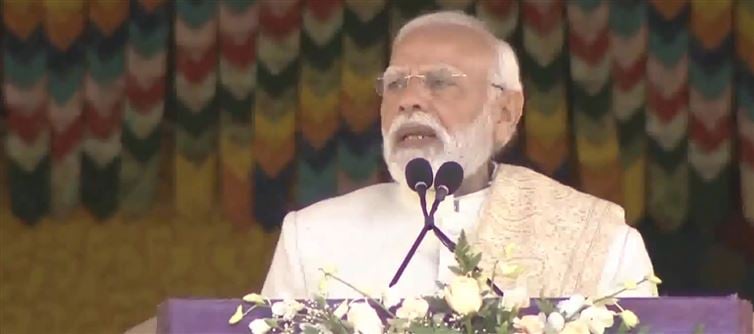
The smoke from Delhi’s red Fort blast had barely cleared when prime minister Narendra Modi’s aircraft touched down in Bhutan.
A capital still mourning its dead watched its leader take the stage — not in delhi, but in Thimphu — delivering condolences to a foreign audience.
For many Indians, the question was simple yet unsettling: Why was the Prime Minister’s voice echoing in bhutan when his people were waiting to hear him in Delhi?
When Tragedy Strikes, Presence Matters
In moments of national crisis, optics become inseparable from empathy. The nation doesn’t just want to hear from its prime minister — it needs to see him standing amid the pain, shoulder to shoulder with his citizens.
The delhi blast wasn’t a distant event — it was an assault on the heart of India’s democracy, just miles away from the parliament that Modi leads. Yet instead of a press conference from South Block, the nation watched him offer condolences from a podium draped in Bhutanese colors.
Symbolism matters. And in that moment, the symbolism was stark: distance.
🌏 Bhutan: Diplomatic Duty or Convenient Detour?
To be fair, Modi’s bhutan visit was not a last-minute decision. It was scheduled weeks in advance — a goodwill visit to mark the Bhutanese King’s birthday and reinforce India’s enduring friendship with the Himalayan kingdom.
But diplomacy is never static; it demands flexibility, especially in the wake of national tragedy. A brief postponement — or even a symbolic visit to the blast site before departure — would have sent a message of compassion and leadership.
Instead, his departure became a talking point. What should have been a diplomatic success was overshadowed by an emotional vacuum at home.
🕯️ Empathy Can’t Be Outsourced
Modi’s speech in bhutan contained the right words — strong, condemning, resolute. But for a grieving nation, words alone weren’t enough. The pain in delhi wasn’t abstract; it was raw, immediate, and demanding of presence.
Leadership in crisis isn’t about maintaining schedules. It’s about breaking them when the nation breaks.
When a prime minister chooses the international stage over the domestic one during tragedy, even the right words begin to sound rehearsed.
And that’s where the line between strength and stagecraft begins to blur.
🧩 Optics Over Outrage: The New Normal?
Modi’s political machinery has long mastered the art of narrative — turning every move into a message. But the danger of relentless image-building is that it can start to look tone-deaf in moments that demand humility.
When optics become the priority, empathy becomes collateral damage.
The bhutan speech wasn’t just about India’s resilience; it was about controlling perception — showing the world that india doesn’t flinch.
But perhaps, at home, people didn’t want a display of control. They wanted to see grief.
⚖️ The Case for Strategic Continuity — and Its Limits
To his defenders, Modi’s presence in bhutan sent a signal of strategic resolve — that terrorism won’t derail India’s commitments or weaken its stature on the world stage.
Bhutan, after all, shares borders with china and has long been central to India’s regional security calculus.
But optics are double-edged. The same gesture that communicates strength abroad can appear cold and disconnected at home.
National strength isn’t measured by sticking to the itinerary — it’s measured by how a leader stands with his people when everything else falls apart.
🔥 The Optics of Absence
In the age of instant perception, absence speaks louder than attendance.
A prime minister who didn’t face his people in delhi found comfort behind the diplomatic podium in Bhutan.
For a nation seeking comfort, that image was hard to reconcile.
This wasn’t a statement of strength — it was a performance of optics. And for once, the optics backfired.
🧨 Conclusion: Between Power and Presence
Modi’s bhutan visit may have upheld the letter of diplomacy, but it missed the spirit of leadership.
True power lies not in how a leader is seen abroad, but in how he stands when his own citizens fall.
At a time when delhi needed a Prime Minister’s hand, it got a Prime Minister’s speech — from another land.
Because in politics, you can manage a crisis from afar. But you can’t mourn from a distance.




 click and follow Indiaherald WhatsApp channel
click and follow Indiaherald WhatsApp channel